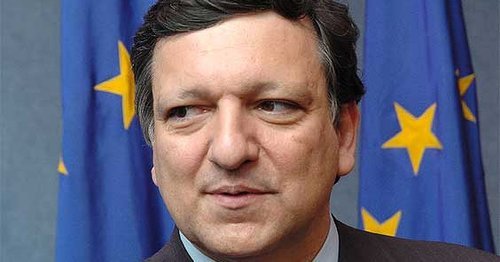This is what the current President of the European Commission stated in euronews. After the approval of the Council of Europe, Barroso is waiting for the approval of the newly elected European Parliament, where the political group he is coming from (European People’s Party) dominated in the European elections of June with 265 seats vis-à-vis 184 seats of the Progressive Alliance of Socialists and Democrats.
Until now, as mentioned above, many European leaders have expressed in public their backing for Barroso’s re-election in the presidency of the European Commission. From the EPP’s side, Silvio Berlusconi has guaranteed the Italian support towards Barroso and Nikolas Sarkozy, despite the wait attitude regarding the institutional progress of the E.U., expressed his liking to Barroso’s face. From Greece, the Prime Minister Constantine Karamanlis declared clear backing to Barroso whereas the British Prime Minister Gordon Brown- member of the Socialist Democrats- characteristically provided Barroso with confidence-vote. Nevertheless, the postponement of his election in September was due to various reactions within the Parliament.
The reaction mainly comes from the European Socialist Party’s side, whose basic characteristic is the shortage of cohesion in its interior, and lies in inexistence of an alternative choice. Nevertheless, each counter-proposal attempt crushes with the existent balances within the Parliament which undoubtedly are in Barroso’s favor. His leading role towards the encounter of the climate change, the ratification procedure of the Reform Treaty, the unprecedented economic crisis and simultaneously his political willingness to mediate in conflicting regional state relations, such as the territorial confrontation among Slovenia and Croatia, resulted in catalytic factors for his re-election.
In addition, the re-election scenarios are reinforced by the constant decreasing orientation of the centre-left in Europe.
In addition, the re-election scenarios are reinforced by the constant decreasing orientation of the centre-left in Europe. Having dismissed its ontological cornerstone, that is to say its social character, the centre-left is limited to anti-systemic political proposals which push away the European electorate and increase the unreliability that it has been giving off to face the challenges of contemporary Europe. For instance, the responsibility attribution for the current economic crisis to the 10years domination of the European People’s Party, as opposition vehicle, constitutes unreliable attitude towards situation that urge joint treatment. Characteristically, economic analysts highlight that the crisis didn’t appear suddenly from one day to another but on the contrary, it is the result of the economic policies that have been followed for the last 20 years, a period that the Socialist Party used to have the majority.
From the opposite side of the European ideological spectrum, the European People’s Party played a leading role for the fulfillment of the institutional gap which derived from the rejection of the Treaty for a European Constitution. The German Chancellor Angela Merkel- member of the EPP- was the introducer of the Lisbon Treaty whose ratification is still in progress. Moreover, the EPP is successfully handling the economic crisis as it managed to attain fellow-feeling among the European leaders, who by acting jointly dispatched hopeful and confidence messages to the European citizens.
For all the reasons mentioned above, the European citizens sent their own message to European leaderships through the elections. They agreed with the current progress and rhythm of the European integration procedure, backing gradual and responsible steps towards a deeper European Union. They preferred pragmatic policies with several political costs and they rejected superficially realistic political proposals, aesthetically and acoustically attractive.


1. On 6 September 2009 at 11:13, by Julien Frisch Replying to: Barroso’s re-election and new political balances
Replying to: Barroso’s re-election and new political balances
Just a small correction: It was the “European Council”, not the “Council of Europe” that nominated Barroso.
http://julienfrisch.blogspot.com
Follow the comments: |
|
